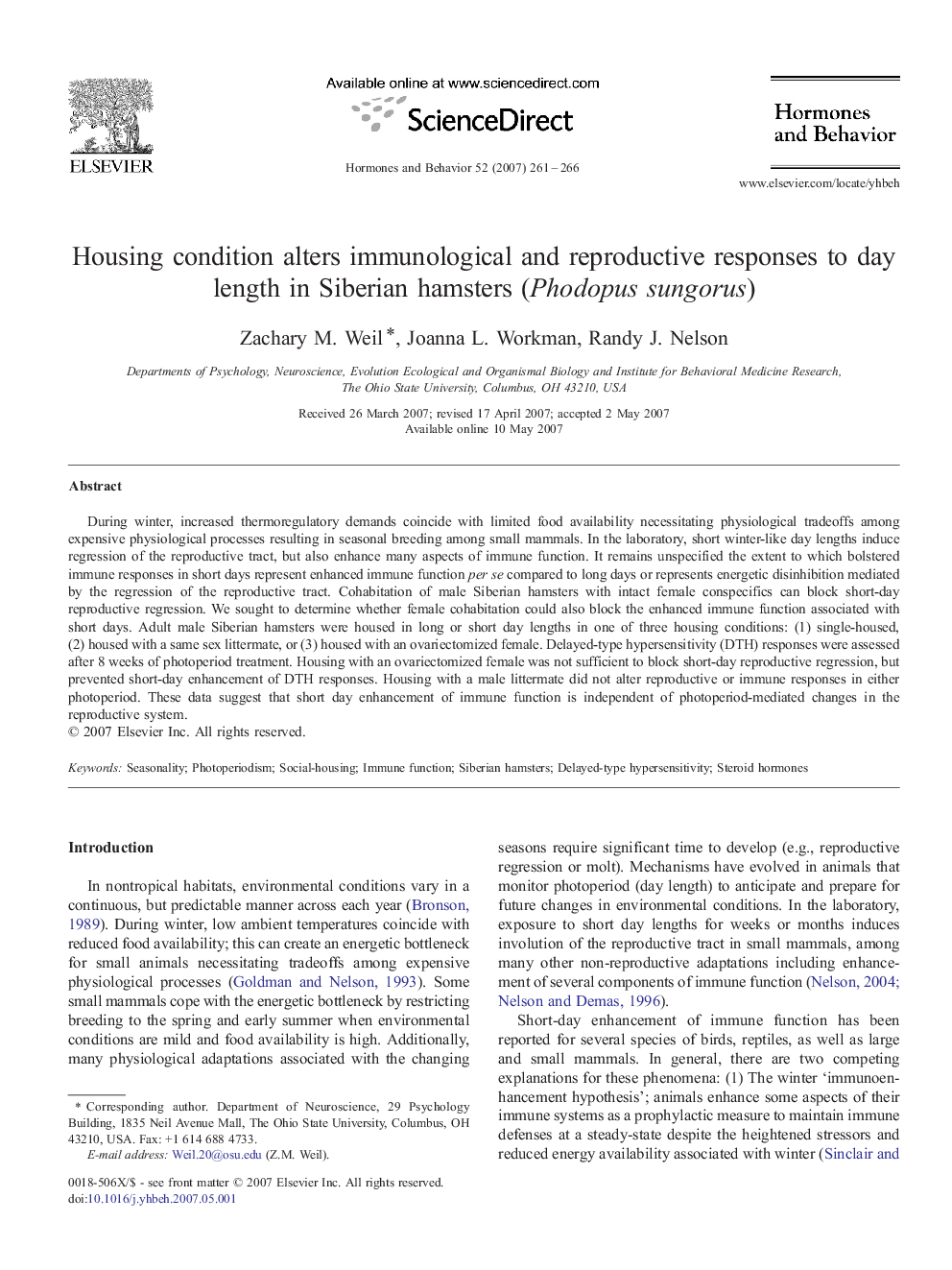| Article ID | Journal | Published Year | Pages | File Type |
|---|---|---|---|---|
| 323311 | Hormones and Behavior | 2007 | 6 Pages |
During winter, increased thermoregulatory demands coincide with limited food availability necessitating physiological tradeoffs among expensive physiological processes resulting in seasonal breeding among small mammals. In the laboratory, short winter-like day lengths induce regression of the reproductive tract, but also enhance many aspects of immune function. It remains unspecified the extent to which bolstered immune responses in short days represent enhanced immune function per se compared to long days or represents energetic disinhibition mediated by the regression of the reproductive tract. Cohabitation of male Siberian hamsters with intact female conspecifics can block short-day reproductive regression. We sought to determine whether female cohabitation could also block the enhanced immune function associated with short days. Adult male Siberian hamsters were housed in long or short day lengths in one of three housing conditions: (1) single-housed, (2) housed with a same sex littermate, or (3) housed with an ovariectomized female. Delayed-type hypersensitivity (DTH) responses were assessed after 8 weeks of photoperiod treatment. Housing with an ovariectomized female was not sufficient to block short-day reproductive regression, but prevented short-day enhancement of DTH responses. Housing with a male littermate did not alter reproductive or immune responses in either photoperiod. These data suggest that short day enhancement of immune function is independent of photoperiod-mediated changes in the reproductive system.
